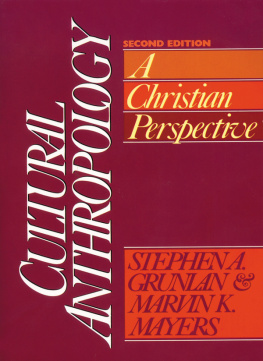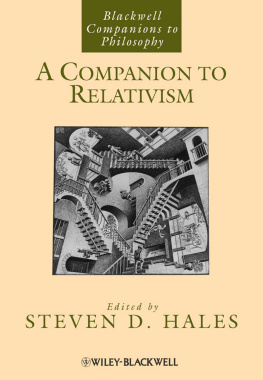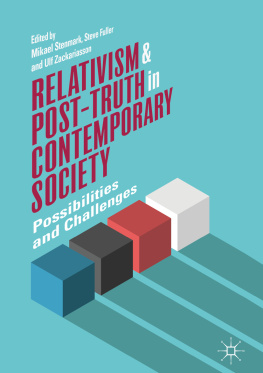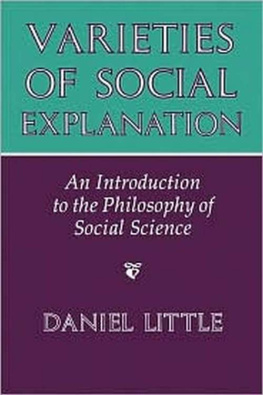ROUTLEDGE LIBRARY EDITIONS: SOCIAL AND CULTURAL ANTHROPOLOGY
Volume 6
RATIONALITY AND RELATIVISM
Rationality and Relativism
In search of a philosophy and history of anthropology
I. C. Jarvie
First published in 1984 by Routledge & Kegan Paul plc
This edition first published in 2016
by Routledge
2 Park Square, Milton Park, Abingdon, Oxon OX14 4RN
and by Routledge
711 Third Avenue, New York, NY 10017
Routledge is an imprint of the Taylor & Francis Group, an informa business
1984 I. C. Jarvie
All rights reserved. No part of this book may be reprinted or reproduced or utilised in any form or by any electronic, mechanical, or other means, now known or hereafter invented, including photocopying and recording, or in any information storage or retrieval system, without permission in writing from the publishers.
Trademark notice: Product or corporate names may be trademarks or registered trademarks, and are used only for identification and explanation without intent to infringe.
British Library Cataloguing in Publication Data
A catalogue record for this book is available from the British Library
ISBN: 978-1-138-92596-0 (Set)
ISBN: 978-1-315-68041-5 (Set) (ebk)
ISBN: 978-1-138-92834-3 (Volume 6) (hbk)
ISBN: 978-1-315-68177-1 (Volume 6) (ebk)
Publisher's Note
The publisher has gone to great lengths to ensure the quality of this reprint but points out that some imperfections in the original copies may be apparent.
Disclaimer
The publisher has made every effort to trace copyright holders and would welcome correspondence from those they have been unable to trace.
Rationality and relativism
In search of a philosophy and history of anthropology
I. C. Jarvie
First published in 1984
by Routledge & Kegan Paul plc
14 Leicester Square, London WC2H 7PH
9 Park Street, Boston, Mass. 02108, USA
464 St Kilda Road, Melbourne,
Victoria 3004, Australia and
Broadway House, Newtown Road,
Henley-on-Thames, Oxon RG9 1 EN, England
Set in Linotron Times 10/11 pt
by Input Typesetting Ltd, London
and printed in Great Britain
by Billing & Sons Ltd., Worcester
I. C. Jarvie 1984
No part of this book may be reproduced in any form without permission from the publisher, except for the quotation of brief passages in criticism.
Library of Congress Cataloging in Publication Data
Jarvie, I. C. (Ian Charles), 1937-
Rationality and relativism.
(International library of sociology)
Bibliography: p.
Includes index.
1. Anthropology-Philosophy. 2. Anthropology-History.
I. Title. II. Series.
GN33.J358 1984 306'.01 83-27055
British CIP data available
ISBN 0-7102-0078-1
Contents
It is useful to know something of the manners of other peoples in order to judge more impartially of our own, and not despise and ridicule whatever differs from them, like men who have never been outside their native country. But those who travel too long end by being strangers in their own homes, and those who study too curiously... are ignorant of what is done among ourselves...
Descartes
Every academic subject has a past history and a present structure. In the present there are boundaries beyond which lie other disciplines, straddling the boundaries are borderline cases. Anthropology interfaces with sociology, biology, linguistics. Borderline hybrids include archaeology, ethno-musicology and primitive art. These boundaries are part of what we might call the intellectual structure of the subject. This is constituted by the central ideas, the polarizing issues, the lines of debate, the division into sub fields, the contested ground, the divisions over methodology, philosophy, alliance, boundaries, and so on.
A subject's history consists in a debate with and about the past of the subject. Stocking (1968) has presented it as a choice between presentism and historism. Presentism asks of the past, how did we get to the present? Historism asks of the past, what really happened back then? As Stocking well knows, history emerges from the interaction of both questions. The historist issue of what debates truly animated the split in the Anthropological Society of London (Stocking 1971) is of interest to anthropologists as opposed to historians of intellectual societies because the issues are firmly located within the boundaries of anthropology's present self-definition. Present concerns alert us to certain historical questions. In exploring the past, their concerns make us reflect anew on our concerns as well as on how the subject moved from those (then) to these (now).
From my first contact with it I have found the subject of anthropology absorbing but incoherent. Incoherent because there seemed to be no discernible structure to the field. Academically it had its connections to archaeology and biology, and was split also into cultural and social. Students were discouraged from reading classics such as Frazer's The Golden Bough (1890) or Boas's The Mind of Primitive Man (1911) as they were misleading about present concerns: a presentist injunction. They were encouraged to read Robertson Smith and Durkheim because they were precursors: another presentist sentiment. There was very heavy emphasis on technical mastery of kinship, politics and law, little attention to religious cosmology, child upbringing or art. Most puzzling of all was a sort of embargo on history, both of the peoples and customs being studied and the people and customs of anthropology itself. Apart from the few precursors, British students were taught that the subject had emerged fully developed from the brows of Bronislaw Malinowski and A. R. Radcliffe Brown sometime around 1920 (Jarvie 1964b; Kuper 1973; Langham 1981).
My sense that this was an incoherent field was heightened by contact with American anthropology, where founding fathers, precursors, academic alliances and intellectual preoccupations were all somewhat different. Even anthropologists have imperia list tendencies in academic matters and the differences were the subject of strident trans-Atlantic polemic (Murdock 1951, Firth 1951, Eggan 1954).
Looking back now I see that a persisting intellectual quest has been to render this incoherent field coherent. The route I chose involved seeking out the intellectual ideas that animate both historical and present concerns and which provide continuity to the one and unity to the other. The Revolution in Anthropology (1964) was partly an attempt to explain what that revolution was and how it came about, and partly a plea for a more open-minded attitude to the achievements of predecessors and in presently pursued practice. It seemed to me that anthropology historically and correctly revolved around answers to problems about the nature, development and unity of mankind; problems that were both philosophical and scientific. I diagnosed a grievous scientism at work in Malinowski and Radcliffe-Brown that was opposed to facing these philosophical continuities and which instead tried to unify the field by professionalizing its practice (fieldwork).









